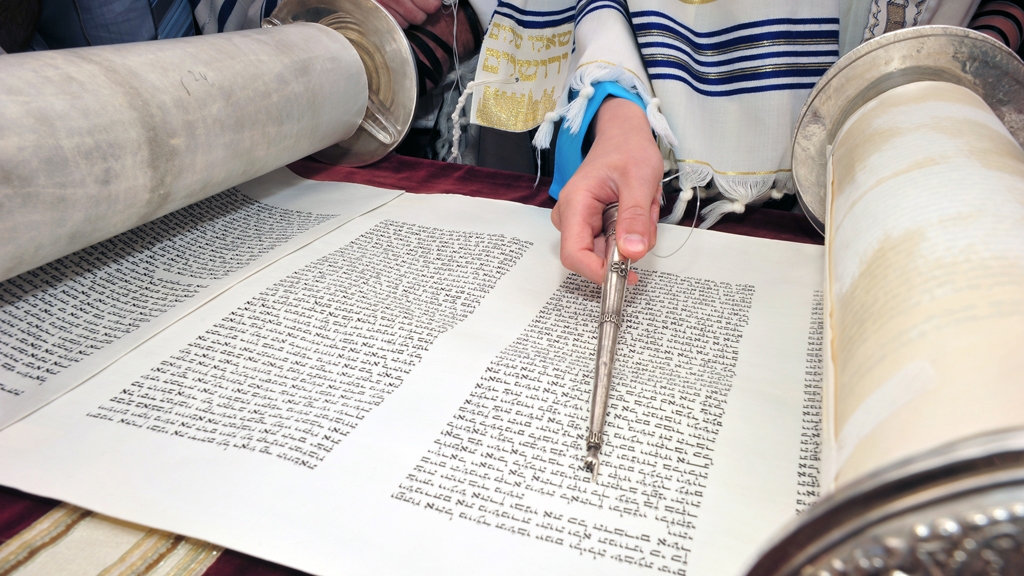Commentary on Parashat Devarim, Deuteronomy 1:1-3:22
In the 40th year, in the 11th month, on the first day of the month. Moses spoke the following to the Israelites:
“Remember God said, ‘I have set this land before you, go in and take possession of the land…’ Now God, your God, has multiplied you and you are now like the stars of heaven in multitude. May God add to you another thousand times as many as you are now, and may God bless you.
“I knew I could not alone carry your contentiousness, your burdens, and your quarrels. So I told you to provide for yourselves wise men of your tribes. You agreed to this system of judges as overseers over the tribes and I charged these judges with specific duties.
“I instructed them saying, ‘Hear disputes between your brethren and judge righteously between every man and his brother and the one who has come from abroad. You shall not show favoritism in judgment. You must hear the small and the great alike. You have no one to fear for the judgment is God’s. When a matter is too difficult for you, you shall bring it to me, and I will hear it.'”

Help us keep Jewish knowledge accessible to millions of people around the world.
Your donation to My Jewish Learning fuels endless journeys of Jewish discovery. With your help, My Jewish Learning can continue to provide nonstop opportunities for learning, connection and growth.
“Then,” Moses continued, “we journeyed on through the great and awesome wilderness, coming as far as the Amorite mountain that God, our God, gives us. See, God has set the land before you. Go up, take possession of it, as God, the God of your fathers, has spoken to you. Do not fear and do not be frightened.
“You asked for me to send out spies to investigate the land and so I did, taking twelve men, one from each tribe. They went as far as the Valley of Grapes and brought back good fruits, saying ‘Good is the land that God, our God, is giving us.’ But you did not want to go up to the land and rebelled against the word of God. You incited one another in your tents and said, ‘Because God hates us, God brought us out of the land of Egypt to deliver us into the hands of the Amorites, the hands of giants, in order to destroy us.’
“Then I said to you, ‘Do not be dismayed and do not fear them. God will fight for you just as God did right before your eyes in Egypt.’ In the wilderness, too, you saw that God carried you just as a man carries his son all the way until you came to this place. Yet, in this matter, you had no trust in God, even as God led us through the wilderness with a fire by night and a cloud by day.
“So God became angry with you and swore that no man among this evil generation would see the good land that God promised to your fathers. Only Caleb, son of Yefunneh and Joshua, son of Nun, shall see it because they have acted faithfully towards God. God said it would be your children, whom have no knowledge of good and evil, who shall inherit this land. But you, you shall wander in the wilderness.
“You responded by acknowledging, ‘We have sinned against God so we will go and fight as God commanded us.’ But God said, ‘Do not fight, because I am not in your midst.’ But you went anyway and the Amorites who dwelled upon that mountain came out to meet you, and pursued you as bees do and struck you to the point of crushing you. You returned and wept before God, but God did not listen to your voice. And you remained then in Kadesh.
“We then turned and journeyed into the wilderness again as God had spoken. Each time God instructed us on whether the people of the land would allow us to pass peacefully or whether war would be necessary.”
In detail, Moses remembers aloud to the Israelites each of these journeys and battles. “In the battles,” Moses reminded the Israelites, “when God delivered the people to us, we conquered the cities and all the inhabitants were killed and the livestock and land and possessions taken as booty. We took many cities, conquered many kingdoms, and took much booty. This conquered land and possessions were then apportioned according to tribes, according to their inheritance.
“Now you are ready, with Joshua as your commander, to enter and possess the land that God gives you. Your eyes have seen everything that God has done to your enemies. So God will do to your enemies in the promised land. So have no fear, for God fights for you when it is time to fight.”
Questions For Discussion
1) Why would God want children “who have no knowledge of good and evil” to inherit the promised land? Is ignorance better than knowledge? Is knowledge of good and evil necessary to make good choices? Why or why not?
2) God tells the Israelites when God will fight for them and when God will not fight for them. What does mean to say that God fights for the Israelites? Do you think God still fights for the Jewish people?
3) Can you tell when God is fighting for you and when God is not fighting for you? How?
Reprinted with permission from Jewish Family & Life!



